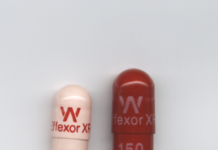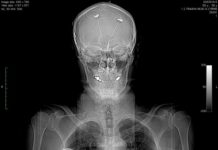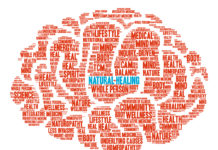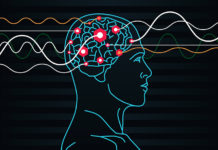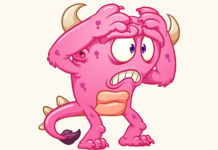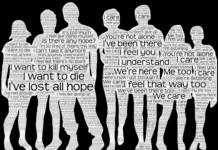“Virtual Autism” May Explain Explosive Rise in ASD Diagnoses
New clinical case studies have found that many young children who spend too much screen time—on TV’s, video games, tablets and computers—have symptoms labeled as “autism.” When parents take away the screens for a few months the child’s symptoms disappear.
Researchers Search for Subgroups Where Antidepressants Are More Effective
The researchers theorized that this increased effectiveness was due not to “antidepressant” properties, but rather to the drug’s side effects, which include insomnia, drowsiness, and nausea.
Relieving Poverty Significantly Improves Mental Health
Giving money to people diagnosed with severe mental health issues can significantly improve depression and anxiety. A new study, published in the October issue of the Journal of Community Mental Health, found that giving about $73 US dollars per month for recreational spending can also reduce social isolation and strengthen a sense of self.
Victim Blaming: Childhood Trauma, Mental Illness & Diagnostic Distractions?
Why, despite the fact that the vast majority of people diagnosed with a mental illness have suffered from some form of childhood trauma, is it still so difficult to talk about? Why, despite the enormous amount of research about the impact of trauma on the brain and subsequent effect on behaviour, does there seem to be such an extraordinary refusal for the implication of this research to change attitudes towards those who are mentally ill? Why, when our program and others like it have shown people can heal from the effects of trauma, are so many people left with the self-blame and the feeling they will never get better that my colleague writes about below?
Peer-Support Groups Were Right, Guidelines Were Wrong: Dr. Mark Horowitz on Tapering Off Antidepressants
In an interview with MIA, Dr. Horowitz discusses his recent article on why tapering off antidepressants can take months or even years.
Adverse Effects: The Perils of Deep Brain Stimulation for Depression
Hundreds of people have been given remote control deep brain stimulation implants for psychiatric disorders such as depression, OCD and Tourette’s. Yet DBS specialists still have no clue about its mechanisms of action and research suggests its hefty health and safety risks far outweigh benefits.
Reimagining Healthcare
The conventional Western classification systems of health conditions are based on flawed science shaped by reductionist, hierarchical, and profit-driven ideologies. THEN wants to create a new paradigm built upon principles drawn from systems science, the life course perspective, developmental neurobiology, and other evidence-informed studies.
Making Peer Counseling Radically Accessible
I imagined a world in which anyone can hit a button on their phone and be connected with a compassionate and empathetic listener, 24/7. So in 2019, I founded Peer Collective. Today, there are 30 peer counselors on the platform offering 30-minute counseling sessions for just $14.
Transcranial Magnetic Stimulation No Better Than Placebo for Treatment-Resistant Depression
A new study in JAMA Psychiatry found that transcranial magnetic stimulation was no better than placebo for treatment-resistant depression.
Mental Health Professionals Critique the Biomedical Model of Psychological Problems
While a great deal of the excitement about advances in psychological treatments comes from the potential for research in neuroscience to unlock the secrets of the brain, many mental health experts would like to temper this enthusiasm. A special issue of the Behavior Therapist released this month calls into question the predominant conception of mental illnesses as brain disorders.
Neurofeedback is Not For Everyone: The Dangers of Neurology
One thing I noticed, from the moment that I stepped out of my psychiatrist’s office, was how strangely blank and yet clear my mind was. I felt surprisingly calm and relaxed, and I decided to go back for another treatment the next week. What I couldn’t have known then was that after that next “treatment,” life would be completely destroyed for me.
The Door to a Revolution in Psychiatry Cracks Open
The Ministry of Health in Norway has ordered its four regional health authorities to offer medicine-free treatment in psychiatric hospitals. A six-bed ward in Tromso, which is in the far north of Norway, is now providing such care.
What Distinguishes “Antipsychiatry”?
University of Toronto lecturer Bonnie Burstow discusses the key elements that distinguish the antipsychiatry perspective from mad, critical psychiatry, psych survivor and other perspectives...
Reflections on Being a Therapist
Three-and-a-half years ago I quit my career as a psychotherapist. I’d done it for ten years in New York City and had given it my all. It was a career that chose me, loudly, when I was 27 years old. I learned a huge amount from it and I believe I was helpful to a lot of people. It also represented a vital stage in my life. But then the time came to leave. That also came as a sort of revelation.
Cognitive Behavioural Therapy Does Not Exist
Since the 1980s, a type of psychotherapy called Cognitive Behavioural Therapy (CBT) has become dominant. Like it or loathe it, CBT is now so ubiquitous it is often the only talking therapy available in both public and voluntary health settings. It is increasingly spoken about in the media and in living rooms across the country. Yet when we speak about CBT, what are we talking of? For CBT only exists - as we will see - as a political convenience.
Helping Children to Overcome OCD: 6 Creative Strategies for Parents
Here, Dr. Ben Furman offers a creative approach to helping children who struggle with OCD. Explaining why behaviors like reasoning, reassuring, and superstitious rituals don’t work, he suggests engaging alternatives that teach kids how to manage their “worry monster” and make sense of their distressing experience.
Spiritual Emergency: Crisis or Transformation?
A spiritual emergency is a crisis during which experiences are so intense that they temporarily disrupt the sense of self. Mislabeling them as pathological symptoms may be damaging to further spiritual development as well as to the individual's psychological and physiological well-being.
My “Head in a Bucket” Metaphor
“How could I not have known?” This question has been asked of me, as a psychiatrist, with regard to prescribing psychiatric drugs. All those...
Suicide Rates Rise While Antidepressant Use Climbs
Multiple media sources are reporting on new data from the CDC revealing a substantial increase in the suicide rate in the United States between 1999...
Healing From Schizophrenia
My experience is that living in a psychosis forces your brain to "stretch" — you develop extra capacity to handle things. I was pretty much living a normal life, even working some of the time, while having all of my psychotic problems. After the psychoses faded away, I no longer needed to fight monsters, but I still had that extra capacity left. After 11 periods of psychosis, my brain has never worked as well as it does now.
Traditional South African Healers Use Connection in Suicide Prevention
Study finds that traditional healers in South Africa, whose services are widely used by the country’s population, perform important suicide prevention work.
Dear Self-Proclaimed Progressives, Liberals and Humanitarians: You’ve Really Messed This One Up
When it comes to psychiatric diagnosis, I can be almost certain that anyone outside of my immediate field of work just won’t ‘get it,’ no matter where they stand on anything else. And not only won’t they get it; they will often actively be one of the unwitting oppressive masses, either through their inaction or worse.
Study Finds Hearing Voices Groups Improve Social and Emotional Wellbeing
Hearing Voices Network self-help groups are an important resource for coping with voice hearing, study finds.
Deadly Serious: Talking Openly About Suicide
The suicide crisis is real. The pain is real. The deaths are real. None of us can afford to stick our heads in the sand and pretend that this isn't happening. But the helplessness and confusion about what to do about it are also real. And that's why peer relationships and peer-developed modalities can be so helpful. Many of us have been there and are still alive to talk about it. We know what ways of relating gave us hope and helped us to continue on.
Antidepressants Do Not Prevent Suicides, May Increase Risk
When the CDC released data revealing an increasing suicide rate in the US, some experts, speaking to major media outlets, speculated that the increase...


